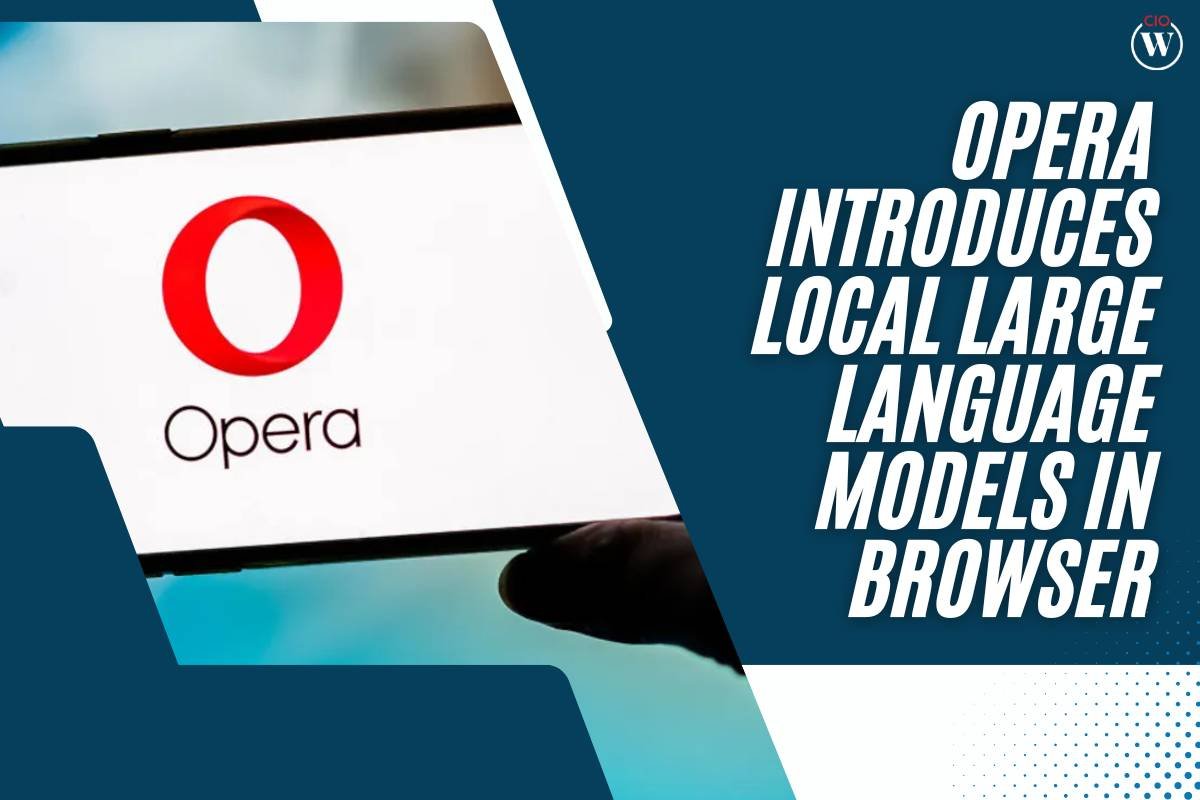Source – ZDNET
Opera, the renowned web browser company, made headlines today with its groundbreaking announcement. The company revealed its latest innovation, allowing users to download and utilize large language models (LLMs) directly on their computers. This feature marks a significant step forward in user accessibility and convenience, positioning Opera at the forefront of browser technology. Initially, the feature will be introduced to Opera One users, who receive developer stream updates, granting them exclusive access to select from over 150 models from more than 50 families.
These models encompass a diverse range, including Llama from Meta, Gemma from Google, and Vicuna. As part of Opera’s AI Feature Drops Program, users can enjoy early access to these cutting-edge AI capabilities. Opera is leveraging the Ollama open-source framework within the browser to execute these models locally on users’ computers. While the current models available represent a subset of Ollama’s extensive library, the company has ambitious plans to incorporate models from various other sources in the future.
Considerations and Insights on Opera’s Latest Offering
Despite the excitement surrounding this new feature, users are advised to exercise caution regarding their available storage space. Each variant of the large language models is estimated to occupy more than 2GB of local storage. Therefore, users must manage their free space diligently to avoid encountering storage issues. Notably, Opera is not implementing any mechanisms to optimize storage usage during the model download process.
Jan Standal, Vice President at Opera, emphasized the significance of this development, stating, “Opera has now, for the first time ever, provided access to a large selection of 3rd party local LLMs directly in the browser. It is expected that they may reduce in size as they get more and more specialized for the tasks at hand.” This statement underscores the transformative potential of Opera’s initiative in enhancing user experiences through locally accessible AI resources.
Opera’s Continued Exploration of AI-Powered Features
Opera’s foray into AI-powered features is not a recent development. The company has been actively exploring this domain since last year, with notable milestones along the way. In May, Opera introduced Aria, an AI-powered assistant integrated into the browser’s sidebar. Building on its success, Opera extended Aria to the iOS version of the browser in August, expanding its reach to mobile users.
In January of the following year, Opera made headlines again by announcing its endeavor to develop an AI-powered browser with its proprietary engine for iOS devices. This strategic move came in response to the EU’s Digital Market Acts (DMA), which urged Apple to reconsider its mandatory WebKit engine requirement for mobile browsers. Opera’s commitment to innovation and user-centric design positions it as a key player in the ever-evolving landscape of web browsers and AI technology.
Opera’s introduction of local large language models in its browser represents a significant leap forward in leveraging AI capabilities for enhanced user experiences. As the company continues to push boundaries and explore new frontiers, users can expect further advancements that redefine the way they interact with technology on the web.









